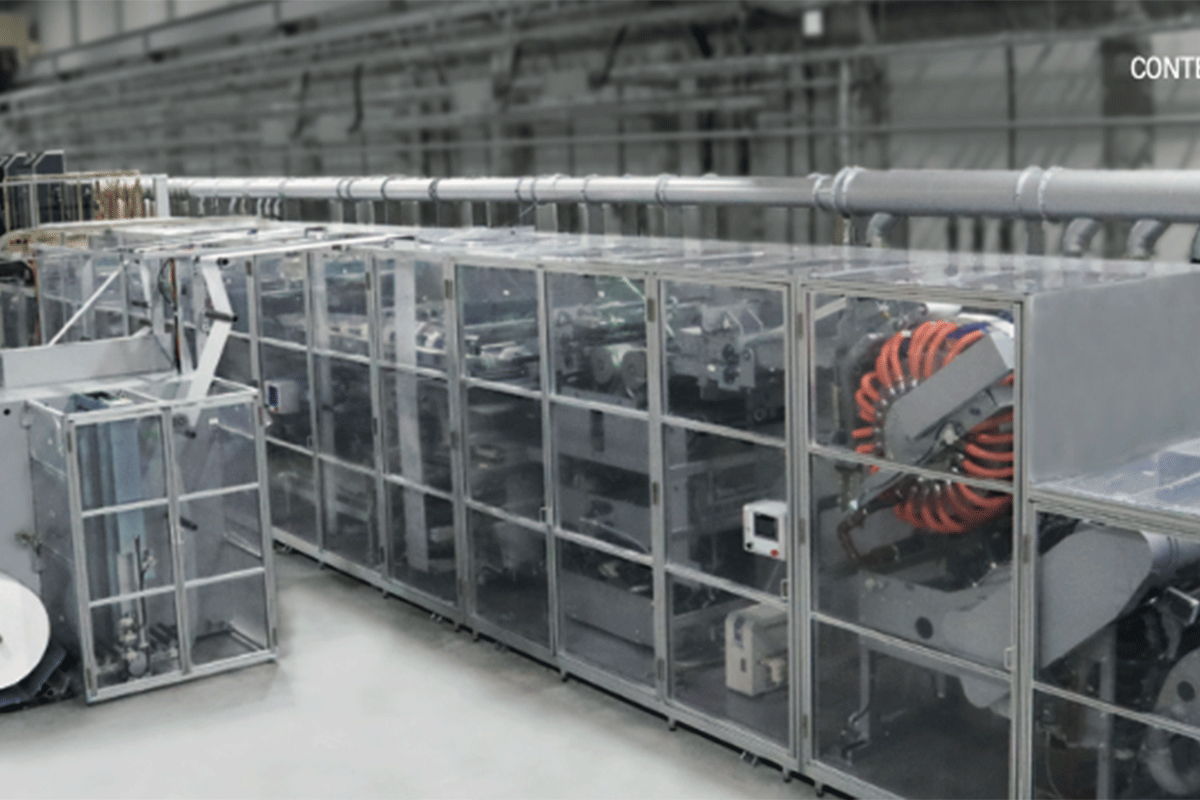Zuiko is dedicated to developing ideas and devices that contribute to society, as well as to environmental initiatives like diaper recycling.

Founded in 1963, Zuiko Corporation boasts six decades of experience when it comes to the design, development, manufacture and maintenance of disposable hygiene product manufacturing systems.
And while, in recent years, there has been a perceived decline in the country’s manufacturing sector, brought on, in part, by the pace of change in modern-day technology, Zuiko Corporation president, Toyoshi Umebayashi, is adamant that Japan retains its expertise in incremental innovation and is highly skilled at combining different elements to create something unique.
The country’s much-vaunted customer-centric approach, meanwhile, ensures that companies such as Zuiko, whose corporate philosophy is to contribute to the healthcare industry and to the health and wellbeing of people all around the world, can respond to new social needs as and when they arise.
Domestically, an aging population, for example, means that, allied to well-documented issues surrounding labor shortages, there is also a growing market for adult diapers. The challenge for Zuiko in this context, according to Mr. Umebayashi, will be to “evaluate our current technologies and manufacturing processes to find the most valuable and essential ones to compete in the global market.”
New technologies help also, with the company having developed new elastic material processing technology that allows for rubber bonding without using adhesives. Zuiko’s commitment to creating a more sustainable and carbon-neutral society, meanwhile, which has found expression in the SFD-600 diaper recycling machine, gives it a clear edge over competitors.
“The issue of diaper waste and its impact on the environment is a big problem globally,” Mr. Umebayashi explains, “accounting for approximately 8% of household waste in Japan and around 10% in Europe.”
“While diapers contribute to human health and wellness,” he continues, “they also create waste. When the waste is burned or put into a landfill, it produces CO2 or methane gas.”
Zuiko’s response? To provide the SFD-600, which turns disposable diaper waste into material for biomass energy. Already in use in Japan, the machine could soon be trialed in a number of European countries as part of the company’s diverse program of global expansion.
Expanding into a foreign country is, of course, fraught with difficulty. The key to any such venture, according to Mr. Umebayashi, is for companies to avoid bringing their entire infrastructure to the local market but instead concentrate on creating a production base locally. That, and communication.
“Communication,” Mr. Umebayashi affirms, “is essential in finding the best partner, and I don’t mind traveling to remote or distant countries to achieve this. No matter how many trips it takes, I am willing to go there to meet with key individuals and find the right partner.”
With eight bases worldwide already, Mr. Umebayashi, whose motto is “local production for local consumption”, has designs on establishing a production base in Europe, as well as continuing to expand Zuiko’s baby diaper and feminine care product machines.
“We are aiming to enter African countries quickly,” he states, “but we need to find the right country to begin our expansion. That’s our priority. We’re also targeting India, which is a rapidly growing market.”
Having started life producing sanitary napkin manufacturing machines, Zuiko has since expanded its technology into different areas such as diaper manufacturing machines, feminine hygiene products, and diaper recycling technology and machinery.
In terms of the future, there are clear plans to expand not only into new countries but into new sectors as well.
Mr. Umebayashi adds: “Our next target is the medical field, where there is room for improvement in efficiency, particularly where manual processes are still used. We can take advantage of our technology in the medical field, especially where we can achieve cost savings. Many medical devices are now made in Southeast Asian countries and exported to other countries mainly because of the cost efficiency. However, if it’s cost-effective, we prefer to manufacture in the U.S. or Europe.”
Looking to the next five years, Mr. Umebayashi is keen that the decline in Japanese manufacturing should be reversed. “Over the last two decades, one of our biggest failures as a country has been the lack of accumulation and tracking of data. We didn’t keep track of data, or we lost it. Technology is essential but the accumulation of data is just as important, and I think it’s something that Japan needs to catch up on in the years to come.”
0 COMMENTS